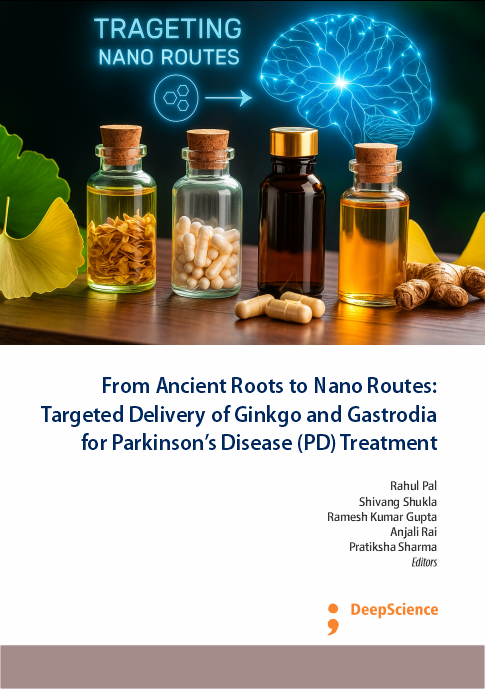Future Directions and Translational Potential: From Bench to Bedside
Synopsis
Background: Parkinson's disease (PD) is a chronic neurodegenerative disorder marked by motor dysfunction and dopaminergic neuronal loss. Traditional herbal remedies, particularly Ginkgo biloba and Gastrodia elata, have shown neuroprotective and anti-inflammatory effects in preclinical studies. However, clinical application has been limited by poor bioavailability (BA) and lack of targeted delivery systems. With the evolution of nanotechnology and advanced drug delivery platforms, the integration of ancient herbal knowledge with modern nanoscience presents a promising avenue for effective PD therapy.
Objective: This chapter aims to explore the future prospects and translational potential of nano-based targeted delivery systems for Ginkgo and Gastrodia in the treatment of PD, highlighting the shift from preclinical evidence to clinical applicability.
Methodology: A comprehensive review of existing literature was conducted, encompassing in vitro and in vivo studies on the pharmacological effects of Ginkgo and Gastrodia, followed by an analysis of current nanocarrier systems (liposomes, NPss, nanoemulsions) utilized in CNS drug delivery. Case studies and emerging clinical trials were evaluated to understand the translational pipeline from laboratory research to human application.
Results: Findings reveal that NPs-mediated delivery significantly enhances the BA, blood-brain barrier (BBB) penetration, and sustained release of Ginkgo and Gastrodia bioactives. Several nanoformulations demonstrated neuroprotective effects, reduction in oxidative stress, and improvement in motor function in PD animal models. Initial clinical trials reflect promising safety profiles and improved therapeutic efficacy compared to conventional preparations.
Conclusion: The integration of ancient herbal therapeutics with modern nanotechnology marks a transformative step toward personalized and efficient PD treatment. The translational shift from bench to bedside, while still facing regulatory and scalability challenges, is increasingly feasible. Continued interdisciplinary research and collaborative efforts are crucial for advancing these nano-herbal formulations into clinical use for PD.
Keywords: Nanoscience, nanocarriers, traditional Chinese medicine, bioavailability, personalized.













